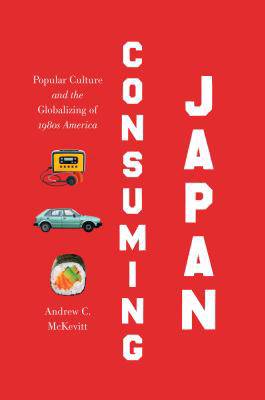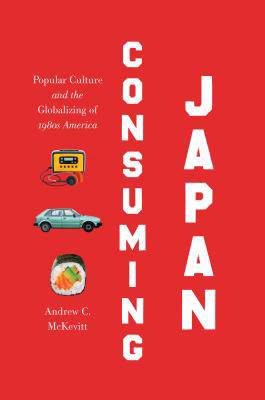
Door een staking bij bpost kan je online bestelling op dit moment iets langer onderweg zijn dan voorzien. Dringend iets nodig? Onze winkels ontvangen jou met open armen!
- Afhalen na 1 uur in een winkel met voorraad
- Gratis thuislevering in België vanaf € 30
- Ruim aanbod met 7 miljoen producten
Door een staking bij bpost kan je online bestelling op dit moment iets langer onderweg zijn dan voorzien. Dringend iets nodig? Onze winkels ontvangen jou met open armen!
- Afhalen na 1 uur in een winkel met voorraad
- Gratis thuislevering in België vanaf € 30
- Ruim aanbod met 7 miljoen producten
Zoeken
€ 137,95
+ 275 punten
Uitvoering
Omschrijving
This insightful book explores the intense and ultimately fleeting moment in 1980s America when the future looked Japanese. Would Japan's remarkable post-World War II economic success enable the East Asian nation to overtake the United States? Or could Japan's globe-trotting corporations serve as a model for battered U.S. industries, pointing the way to a future of globalized commerce and culture? While popular films and literature recycled old anti-Asian imagery and crafted new ways of imagining the "yellow peril," and formal U.S.-Japan relations remained locked in a holding pattern of Cold War complacency, a remarkable shift was happening in countless local places throughout the United States: Japanese goods were remaking American consumer life and injecting contemporary globalization into U.S. commerce and culture. What impact did the flood of billions of Japanese things have on the ways Americans produced, consumed, and thought about their place in the world?
From autoworkers to anime fans, Consuming Japan introduces new unorthodox actors into foreign-relations history, demonstrating how the flow of all things Japanese contributed to the globalizing of America in the late twentieth century.
From autoworkers to anime fans, Consuming Japan introduces new unorthodox actors into foreign-relations history, demonstrating how the flow of all things Japanese contributed to the globalizing of America in the late twentieth century.
Specificaties
Betrokkenen
- Auteur(s):
- Uitgeverij:
Inhoud
- Aantal bladzijden:
- 288
- Taal:
- Engels
- Reeks:
Eigenschappen
- Productcode (EAN):
- 9781469634463
- Verschijningsdatum:
- 9/10/2017
- Uitvoering:
- Hardcover
- Formaat:
- Genaaid
- Afmetingen:
- 156 mm x 234 mm
- Gewicht:
- 621 g

Alleen bij Standaard Boekhandel
+ 275 punten op je klantenkaart van Standaard Boekhandel
Beoordelingen
We publiceren alleen reviews die voldoen aan de voorwaarden voor reviews. Bekijk onze voorwaarden voor reviews.











